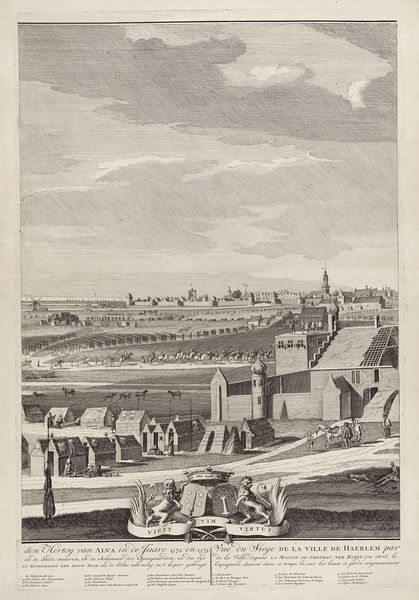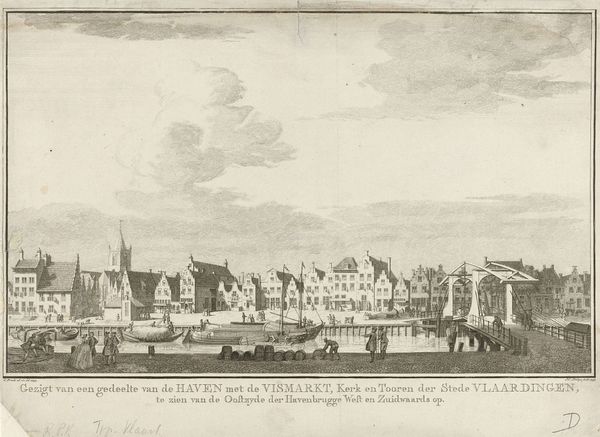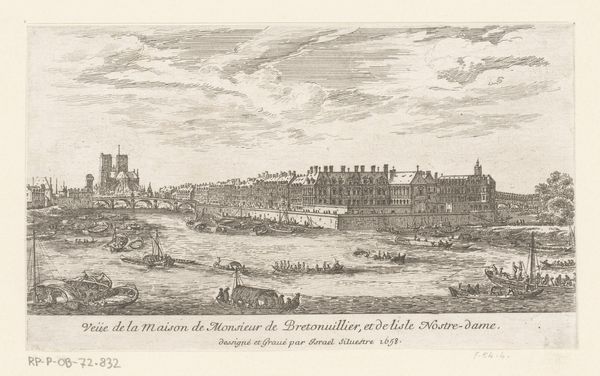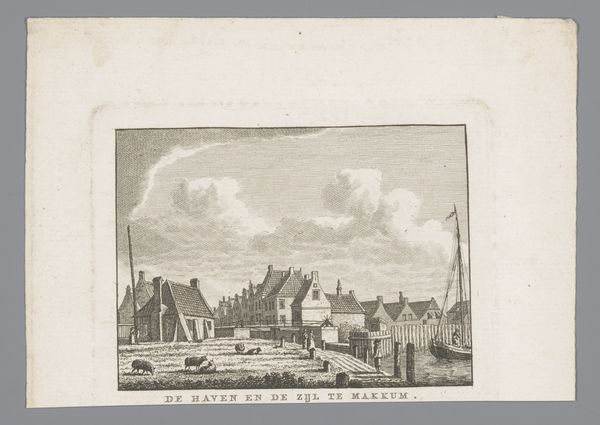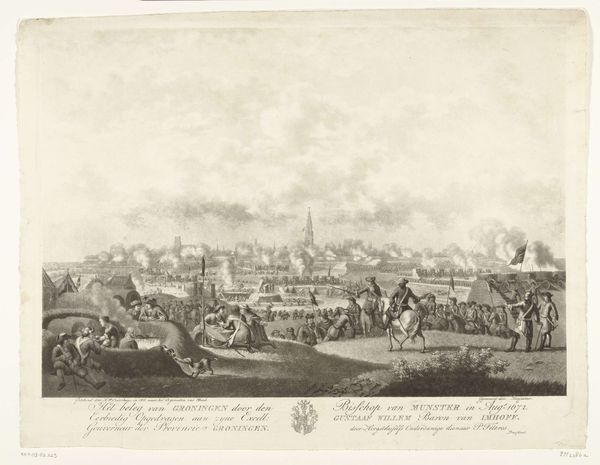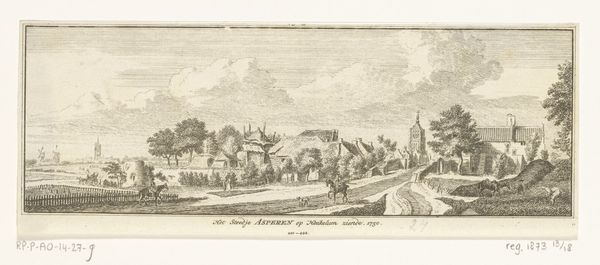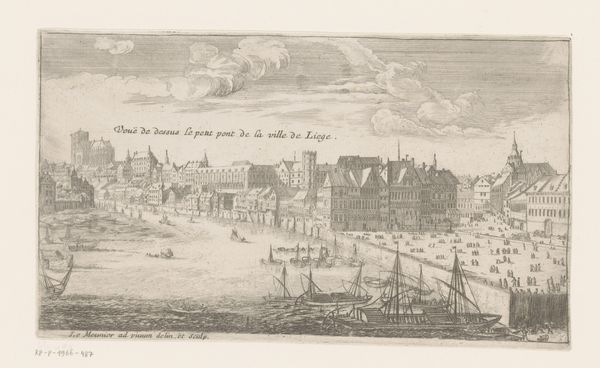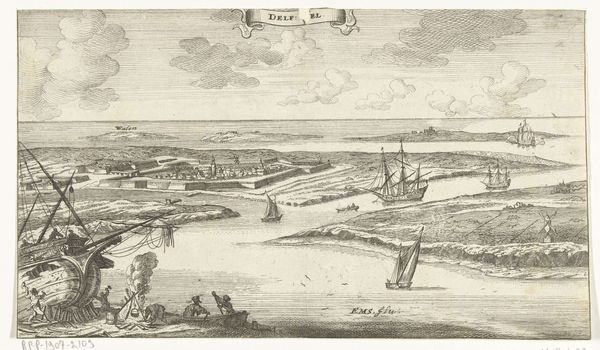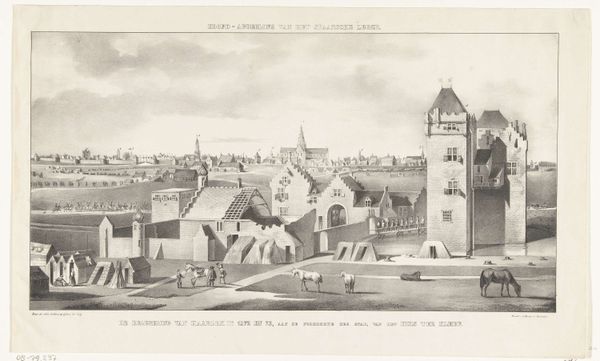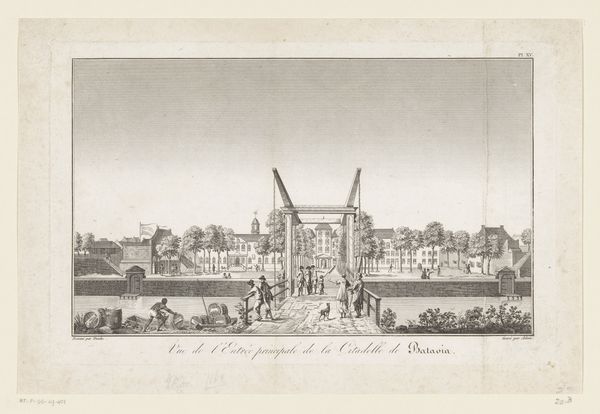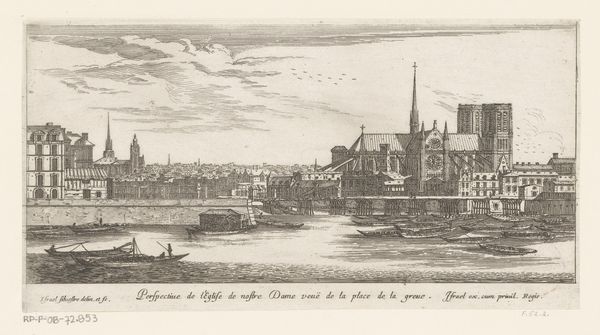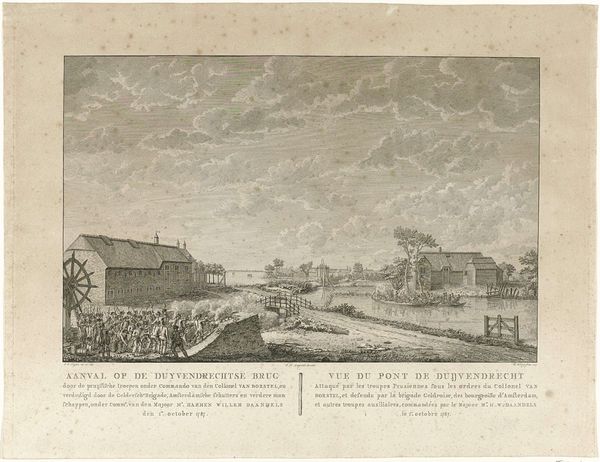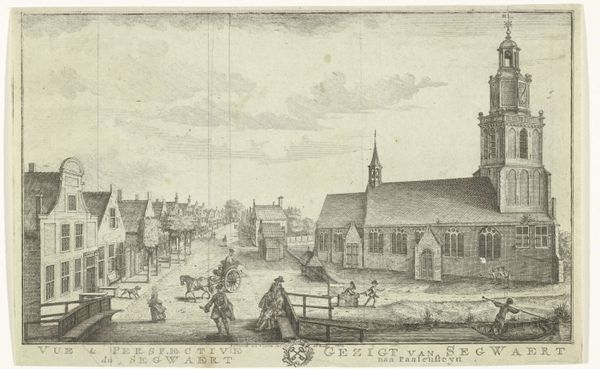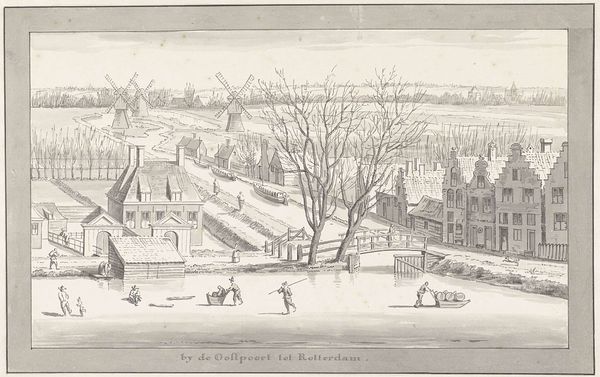
print, etching
#
baroque
#
dutch-golden-age
# print
#
etching
#
old engraving style
#
etching
#
pencil drawing
#
cityscape
Dimensions: height 745 mm, width 1510 mm
Copyright: Rijks Museum: Open Domain
Editor: We're looking at "Siege of Haarlem, 1572-1573" by Hendrik Spilman, an etching printed sometime between 1742 and 1779. The scene is quite detailed, depicting the layout of a city under siege, and what strikes me most is the geometric rigidity of the landscape and architectural elements. How do you interpret this work, with its formal style? Curator: Indeed. Let us analyze its composition through a formalist lens. Observe how the image is structured, bisected by the horizon line, creating distinct upper and lower registers. Consider also how the artist creates depth through precise delineation and graded contrasts rather than tonal gradations. It seems the organization of pictorial space operates according to strictly logical geometric principles. Editor: So, would you say that the subject matter is secondary to the form? Is the print's formal execution perhaps conveying something about the Dutch Golden Age and the power structures within it? Curator: The medium itself, etching, lends to this meticulous, structured approach. What visual impact do you think results from the artist's decision to render this landscape, a presumed "real world," through such rigid structures? Do you find a relationship between its formal qualities and its narrative purpose? Editor: I think it really draws your attention to the strategic positioning of elements within the print. I notice that this meticulous structuring can communicate a message of calculated control, as opposed to merely documenting an event. Thank you! Curator: Yes. Reflecting on the artist's methodical hand provides profound insight into the broader intellectual landscape that birthed the piece. I too, have valued our interchange!
Comments
No comments
Be the first to comment and join the conversation on the ultimate creative platform.
